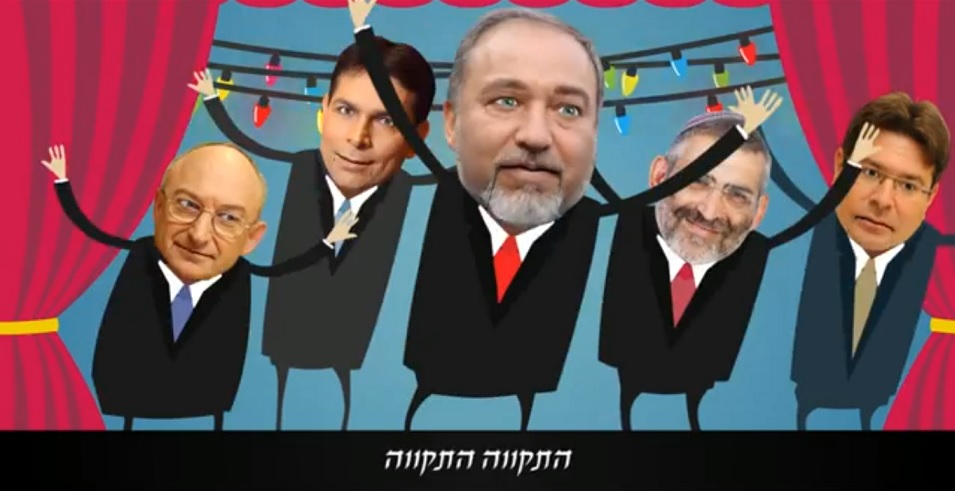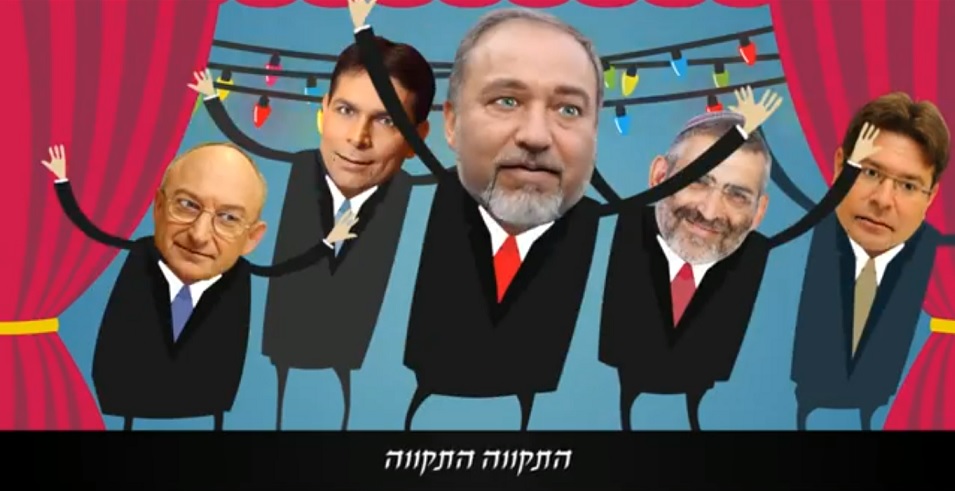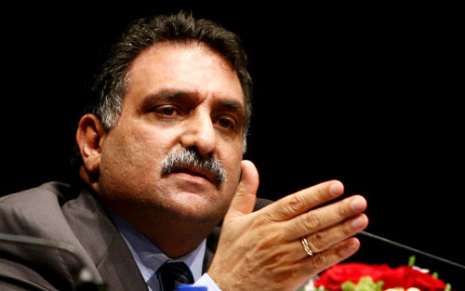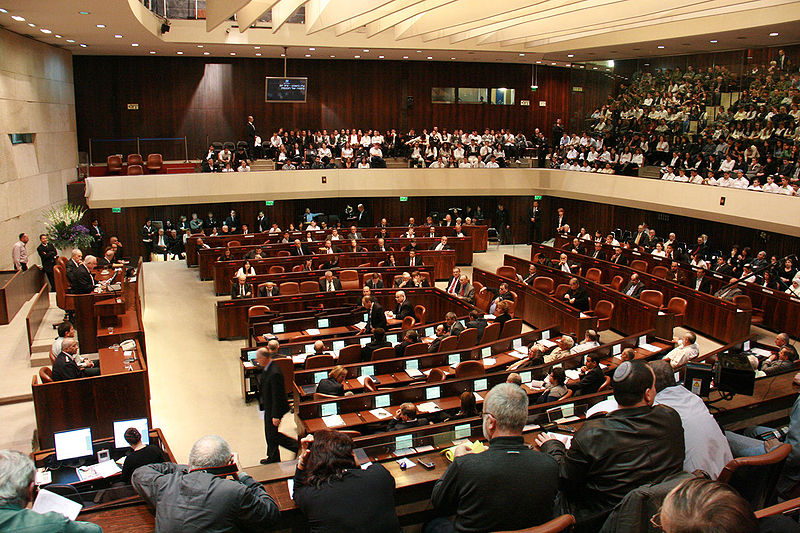The Prosecution of MK Dr. Azmi Bishara - Adalah’s Statement of the Cases
On 7 November 2001, the Israeli Knesset voted to lift the immunity of Member of Knesset (MK) Dr. Azmi Bishara, head of the National Democratic Assembly party. This move came at the request of the Attorney General, Elyakim Rubenstein, in order to indict Dr. Bishara for two political speeches and for the organization of humanitarian visits by Palestinian citizens of Israel to Syria to meet with relatives from whom they have been separated since 1948. The removal of MK Bishara’s immunity is an unprecedented event in the history of Israeli politics. It is the first time that an MK has been stripped of his immunity for voicing political dissent in the course of performing his duties as a public representative.
The Indictments
The first set of charges relate to political speeches made by MK Bishara at a public gathering in the Arab town of Umm al-Fahem, Israel on 5 June 2000 and at a memorial assembly in Syria on 10 June 2001, in which he expressed support for the right to resist the Israeli occupation of the Palestinian territories and South Lebanon. For these statements, MK Bishara is charged with two counts of supporting a terrorist organization, namely Hezbollah, in violation of sections 4(a), 4(b) and 4(g) of the Prevention of Terrorism Ordinance (1948).
MK Bishara is also charged, along with two of his parliamentary assistants, Mr. Musa Diab and Mr. Ashraf Qurtam, in connection with a series of visits he organized, whereby elderly Palestinian citizens of Israel traveled to Syria to visit relatives whom they had not seen since 1948. MK Bishara, Mr. Diab and Mr. Qurtam are charged with assisting in unlawful departure, pursuant to Regulation 18 (d) and (a), together with Regulation 5, of the Emergency Regulations (Foreign Travel) (1948) as amended in 1961.
Adalah’s Position on the Speech Case
With respect to the charges against MK Dr. Bishara relating to his speeches in Umm al-Fahem and Syria, Adalah argues that:
The content of Dr. Bishara’s speeches, which deal with the right to resist occupation, are based on international human rights principles and the internationally recognized right of peoples to struggle for liberation and self-determination. Moreover, Dr. Bishara has made similar remarks to those made in Umm al-Fahem and in Syria both in the Knesset and to the Israeli media. Thus, there is nothing conceptually new in these statements.
This case is about the right for political representation of the Palestinian minority in Israel. MK Dr. Bishara, as an elected public representative, reflects the opinions of the vast majority of Palestinian citizens in Israel regarding the issues of liberation and self-determination. The government and the Knesset, by seeking indictments against Dr. Bishara and by lifting his immunity, limit the right of representation of the minority. By indicting Dr. Bishara for his legitimate political speech, Attorney General Rubenstein is attempting to criminalize a political debate. Such action suggests that the Attorney General is pursuing a political agenda, in violation of his duty to uphold the rule of law with consistency, decency, and good faith.
There is no legal basis for lifting Dr. Bishara’s immunity. His statements, addressing the political situation in the Middle East and the dangers that lie behind Prime Minister Ariel Sharon’s government, are classic cases of political speech, which enjoys full legal protection. The removal of an MK’s immunity as a result of his political speech is without precedent in Israeli law. As Supreme Court Justice Shamgar stated:
“The importance of substantive immunity is to allow the Member of Knesset to perform his duty as a public representative and to say his words by speaking or by voting in the most free manner, without being afraid that steps will be taken against him because of his activity ... Substantive immunity also applies to public political speeches by MKs, whether in the Knesset or at public gatherings, because the expression ‘to perform his role as a Member of Knesset’ in Article 1 of the Law of Immunity of MKs, Their Rights and Their Duties (1951) should be interpreted to include political statements. A Member of Knesset is considered a public figure, in that his political actions are considered to be his role and his mission, and this role is not limited to the Knesset.”
(H.C.J. 620/85, Mi’ari v. The Chairperson of the Knesset, PD 41(4)169)
In most democratic societies, the state may not forbid or prohibit speech unless it is directed to inciting or producing imminent lawless action and is likely to produce such action. MK Dr. Bishara’s speech did not constitute such a threat. When the speech is directed to an audience that shares the same perspective, the question that must be asked is who has been incited?
The Attorney General has used and will continue to use political rhetoric in an attempt to convince the court to accept opinion over the law. Already, Jerusalem District Attorney Moshe Lador has used biased, politically motivated statements in a motion filed to the Jerusalem Magistrate Court, seeking to expedite Dr. Bishara’s speech trial. In advancing his argument, Mr. Lador characterized Dr. Bishara as a “Member of Knesset and a leader who supports terrorists organizations, and who calls on these organizations to use terror against Israeli citizens.” Not only was the rhetoric employed in the motion sufficiently harsh to draw expressions of surprise from Israeli legal experts, but the rescheduling it proposed threatens to violate Dr. Bishara’s right to a fair trial.
Adalah’s Position on the Syria Visits Case
In the case against Dr. Bishara relating to the Syria visits, Adalah argues that:
The trips were a humanitarian effort undertaken by Dr. Bishara. Most of the participants were elderly people who had been separated from members of their immediate families for more than 50 years. These family members had been forced to flee Palestine for Syria as refugees during the 1948 war, and were barred by the Israeli authorities from returning to their homes.
The Israeli government was aware of the trips to Syria for some time, but allowed them to continue. The decision to pursue criminal action against Dr. Bishara amounts to a legal after thought, an attempt to add legal weight to the speech charges, and a further indication of the Attorney General’s political agenda against Dr. Bishara.
The State of Israel has a duty to facilitate family reunification visits for Palestinian citizens. The Law of Return (1950), which allows Jews from all over the world to immigrate to Israel and obtain Israeli citizenship, assists in the reunification of Jewish families, but excludes indigenous Palestinians. The state’s duty to facilitate family reunification finds support in international human rights law and various United Nations resolutions.
The charges against Dr. Bishara were filed under the Emergency Regulations (Foreign Travel) (1948), adopted from the British Mandate regime, which used these laws against both Jews and Arabs in Palestine. Prior to the establishment of the state, Jewish lawyers characterized these regulations as draconian, colonialist and fascist, yet the Israeli government continues to use them against Palestinian citizens of the state.
In representing Dr. Bishara, Adalah will demonstrate that the cases against him are without legal basis and contradict international human rights law. Adalah will also reveal the political agenda that lies behind the lifting of his immunity and subsequent prosecution.
















